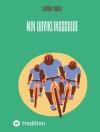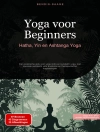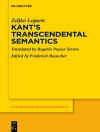In a focused assessment of one of the founding members of the
liberal tradition in philosophy and a self-proclaimed
’Under-Labourer’ working to support the scientific
revolution of the seventeenth century, the author maps the full
range of John Locke’s highly influential ideas, which even
today remain at the heart of debates about the nature of reality
and our knowledge of it, as well as our moral and political rights
and duties.
* Comprehensive introduction to the full range of Locke’s
ideas, providing an up-to-date account that acknowledges issues
raised by recent scholarship over the past decade
* A well-rounded perspective on one of the intellectual giants of
the western philosophical tradition
* Provides detailed coverage of Locke’s two key works,
An Essay Concerning Human Understanding and The Two
Treatises of Government.
* A sophisticated analysis by a highly respected academic
* A vital addition to the Blackwell Great Minds
series
Innehållsförteckning
preface ix
abbreviations xi
1 locke’s life 1
2 the nature and role of ideas 13
3 the negative project: against innatism 23
4 the positive project: ideational empiricism 39
4.1 simple ideas 40
4.2 sensation and reflection 43
4.3 complex ideas 46
4.4 abstract ideas 56
4.5 challenges to ideational empiricism: the ideas of infinity
and substratum 61
5 substances 70
5.1 body, matter, space, and vacuum 70
5.2 spirit 75
6 qualities 83
7 mental operations 98
7.1 actions and passions 98
7.2 will and willing 101
7.3 voluntariness and involuntariness 103
7.4 freedom, necessity, and determination of the will 104
7.5 a problem 110
8 relations 113
8.1 identity and diversity 114
8.2 moral relations 128
9 language 133
9.1 language and meaning 134
9.2 the imperfections and abuses of language 140
9.3 nominal essence, real essence, and classification 143
10 knowledge and belief 152
10.1 the official account of knowledge 152
10.2 the degrees of knowledge 156
10.3 anti-dogmatism and anti-skepticism 159
10.4 faith and religious enthusiasm 164
11 moral philosophy 169
11.1 morality and God’s will 169
11.2 natural law 172
11.3 punishment and slavery 176
11.4 property 180
11.5 family 187
12 political philosophy 195
12.1 political society 196
12.2 legitimate rule 197
12.3 varieties of illegitimate rule 207
12.4 toleration 209
index 215
Om författaren
Samuel C. Rickless is Professor of Philosophy at the
University of California, San Diego, USA. He earned his Ph.D. in
1996 from the University of California, Los Angeles, before
beginning his teaching career at Florida State University. The
author of two books, Plato’s Forms in Transition: A
Reading of the Parmenides (2007), and Berkeley’s
Argument for Idealism (2013), Professor Rickless has published
numerous scholarly articles on a variety of topics in the history
of philosophy, writing on key figures including Plato, Descartes,
Berkeley, Hume, and Kant, in addition to Locke. His research
interests include normative ethics, constitutional law, and the
philosophy of language.












